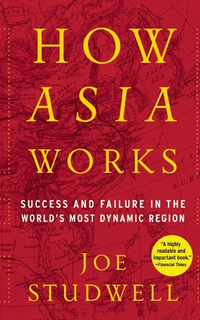Mentions
- Post
Clear explanation of how mentioned economies thrived

- Curated in 6 books I recommended for TED 2015
Business journalist Joe Studwell produces compelling answers to two of the greatest questions in development economics: How did countries like Japan, Taiwan, South Korea, and China achieve sustained, high growth? And why have so few other countries managed to do so? His conclusion: All the countries that become development success stories (1) create conditions for small farmers to thrive, (2) use the proceeds from agricultural surpluses to build a manufacturing base that is tooled from the start to produce exports, and (3) nurture both these sectors with financial institutions closely controlled by the government.

- Curated in The best books I read in 2014
Studwell produces compelling answers to two of the greatest questions in development economics: How did countries like Japan, Taiwan, South Korea, and China achieve sustained, high growth? And why have so few other countries managed to do so? His answers come in the form of a simple—and yet hard to execute—formula: (1) create conditions for small farmers to thrive, (2) use the proceeds from agricultural surpluses to build a manufacturing base focused on exports, and (3) nurture both these sectors with financial institutions closely controlled by the government. The agriculture section of the book was particularly insightful. It provided ample food for thought for me as well as the whole Agriculture team at our foundation. And it left us thinking about whether parts of the Asian model can apply in Africa.

How successful Asian economies grew by applying neo-List-ian rather than Smith-ian ideas. (Related Fallows article.)
